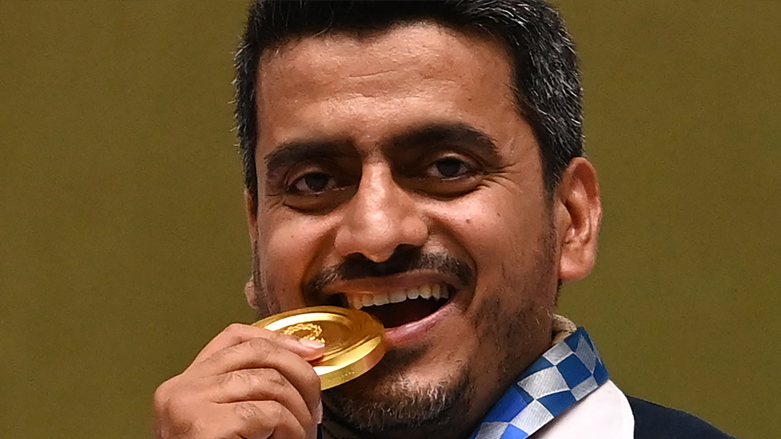Kurdish-Iranian IRGC sharpshooter claims Olympic gold in Tokyo

ERBIL (Kurdistan 24) – A Kurdish sniper in the Iranian military has won a gold medal for shooting at this year’s Tokyo Olympic Games, the tournament announced on Saturday.
Javad Foroughi🇮🇷 has won gold in the Men's 10m Air Pistol at #Tokyo2020 🥇
— #Tokyo2020 (@Tokyo2020) July 24, 2021
He also set an #Olympics #Shooting record of 244.8 #UnitedByEmotion | #StrongerTogether | @ISSF_Shooting
The official website of the games stated that Javad Foroughi had set "a new Olympic record of 244.8 points to take gold at the Asaka Shooting Range."
It continued, explaining that Foroughi "held his nerve to win a thrilling final, with Serbia's Damir Mikec finishing second on 237.9 points and People's Republic of China's PANG Wei winning bronze with 217.6 points."
The 41-year-old gold medalist is an ethnic Kurd from western Iran's Illam province, part of Rojhilat, or Iranian Kurdistan.
History as an IRGC sniper
Foroughi is a member of a sniper team that is part of the Islamic Revolutionary Guard Corps (IRGC) Quds Force, according to the IRGC-affiliated Tasmin News Agency.
He fought in the Syrian civil war for three years (2013-2015) under the commandership of Hossein Hamadani, a top Iranian officer overseeing IRGC forces in Syria who was killed in an alleged ISIS attack in Aleppo, the Iranian news agency reported. Foroughin also served in a medical capacity in Syria.
The state-supported outlet quoted Foroughi talking about the importance of teamwork in achieving success.
"In terms of support and logistics, we need a soldier on the front line who comes to battle who should be assisted by nine soldiers," he said, likening it to a sports team that needs to work together in order to win the gold.
The IRGC forces, designated as a terrorist organization by the US.
Since the eruption of the Syrian civil war in 2011, Iran has taken a significant role in the bloody conflict, both directly via boots on the ground and indirectly through funding and supervising Shia militias.
Editing by John J. Catherine
